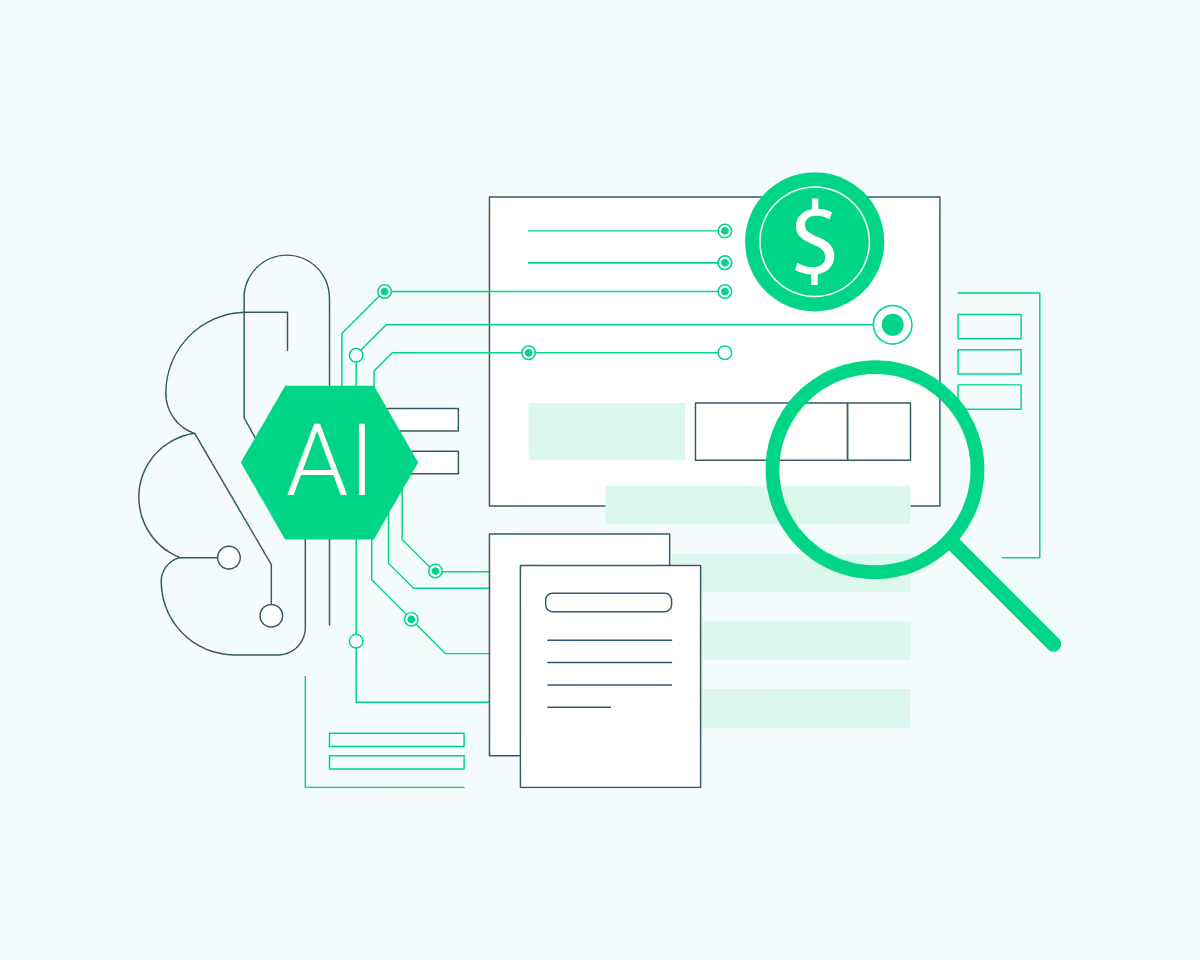Ready to create more pipeline?
Get a demo and discover why thousands of SDR and Sales teams trust LeadIQ to help them build pipeline confidently.



More and more organizations are using AI in CRM workflows to automate processes, rapidly uncover new insights, and ultimately close more deals.

From business intelligence and streamlined reporting to data management and meeting scheduling, there’s no shortage of ways that AI can speed up sales processes.

But you can’t just invest in AI and expect great results; following proven steps, however, can increase the chances your investments in AI pay off.
Get a demo and discover why thousands of SDR and Sales teams trust LeadIQ to help them build pipeline confidently.
Artificial intelligence is transforming customer relationship management (CRM), changing the way businesses interact with customers, manage tasks, and drive sales.
While traditional CRMs rely on manual data entry and analysis — which often leads to inefficiencies, errors, and missed opportunities — AI makes these systems smarter. With AI, CRMs can autonomously analyze customer behavior, predict sales trends, and personalize outreach at scale.
Imagine a CRM that not only tracks customer interactions but also suggests the best time to follow-up, drafts personalized emails, and even flags at-risk accounts before they churn. AI-powered CRMs can automate repetitive tasks, freeing sales reps and account executives to focus on strategic relationships — not data entry.
AI in CRMs isn’t one-size-fits-all. Different technologies power different aspects of customer management. Some of the key types of AI in CRMs include:
AI is transforming CRMs from passive data storage tools into proactive systems that enhance customer engagement, drive revenue, and streamline sales processes. To give you a better idea of what this looks like in the real world, here are several battle-tested AI-powered CRM use cases sales teams are leveraging to drive better business outcomes:
AI-powered CRMs are reshaping the way businesses manage customer relationships, offering smarter automation, deeper insights, and more personalized interactions with little human intervention. From generative AI writing tools to predictive analytics, AI-driven CRMs help sales, marketing, and customer success teams work more efficiently.
Now that we’ve got the basics out of the way, let’s drill down into five leading AI-enhanced CRM sales tools, highlighting their key features along with pros and cons.
LeadIQ Scribe is an AI-powered tool that enables reps to generate personalized messages for prospects and customers in just a few clicks. Using personas, contact data, value props, and other LeadIQ insights, Scribe enables reps to generate three personalized emails in five different languages.
Pros:
Cons:
Pricing: 40 email generations/month included in the free tier
Salesforce AI enhances CRM capabilities with intelligent automation, predictive analytics, and AI-driven insights. It helps teams identify high-potential leads, optimize customer interactions, automate nurture campaigns, and forecast revenue trends more accurately. Salesforce AI also enables organizations to deploy Agentforce Agents that can manage tasks autonomously — helping reps reclaim time and reinvest it in what’s most important.
Pros:
Cons:
Pricing: Starts at $165/user/month
HubSpot Breeze is an AI-powered assistant that simplifies customer interactions by automating responses, analyzing engagement data, and enriching prospect records. Using predictive analytics, Breeze helps teams forecast more accurately and also suggests the next best course of action. On top of this, the solution includes tools designed to help marketing teams create blogs, generate web copy, and optimize existing content.
Pros:
Cons:
Pricing: Starts at an extra $45/user/month
Vidyard AI Avatars use artificial intelligence to create and personalize video content for sales outreach. Using virtual agents, reps can generate customized video messages, analyze viewer engagement metrics, and take recommended follow-up actions based on audience behavior. By leveraging AI-driven video content, sales teams can create more engaging and high-converting outreach campaigns at scale.
Pros:
Cons:
Pricing: Stock AI Avatars included in free tier; custom AI Avatar pricing information unavailable
Pipedrive AI Sales Assistant is designed to help sales teams optimize pipeline management and improve deal conversion rates. The technology provides smart recommendations on which leads to prioritize, automates task reminders, and generates insights reps can use to refine sales strategies and improve sales velocity.
Pros:
Cons:
Pricing: Starts at $49/user/month
Artificial intelligence is transforming CRMs by making sales processes smarter, faster, and more efficient. From automating repetitive tasks to providing data-driven insights, AI enhances how sales teams engage with prospects, prioritize leads, and forecast revenue.
With that in mind, let’s take a look at four key benefits of AI in CRMs to give you a better idea of why, for more and more sales teams, artificial intelligence is more than a nice-to-have.
Sick of tackling repetitive tasks by hand? AI-powered sales agents can help, acting as digital assistants that handle things like data entry, follow-ups, and appointment scheduling. These intelligent agents can autonomously engage leads, provide real-time updates, and even draft personalized messages based on customer interactions. By reducing manual workloads, AI enables sales teams to focus more on relationship-building and closing deals.
AI-driven automations also ensure consistency in outreach and engagement, minimizing missed opportunities. Ultimately, agents streamline sales workflows, increasing efficiency and overall team productivity.
AI in CRMs analyzes tons of customer data to generate personalized recommendations for both sales reps and leaders. While reps receive AI-driven insights on the best follow-up activities and ideal outreach times, AI helps leaders understand trends in sales performance, identify coaching opportunities, and figure out ways to optimize team productivity.
Add it all up, and this level of personalization helps businesses build stronger customer relationships while improving sales efficiency.
AI enhances lead scoring by analyzing historical data, engagement levels, and behavioral signals to rank prospects more accurately. Traditional lead scoring methods often rely on static criteria whereas AI continuously refines lead scores based on real-time interactions and predictive analytics — ensuring reps focus the bulk of their efforts on the most promising leads.
Additionally, AI can identify hidden patterns in customer behavior that reps themselves might overlook. With more precise lead scoring, sales teams can prioritize high-value opportunities and optimize their outreach strategies accordingly.
AI-powered CRMs improve sales forecasting by analyzing historical trends, deal progression, and market conditions to predict future revenue more accurately. Unlike traditional forecasting methods that rely on historical data, AI adapts to real-time changes in customer behavior and market dynamics — which allows leaders to make more informed decisions about resource allocation, hiring, and strategies.
AI also helps manage the sales pipeline by identifying stalled deals, recommending corrective actions, and predicting potential roadblocks. With better forecasting and increased pipeline visibility, businesses can proactively drive revenue growth and mitigate risks.
Integrating AI into your CRM requires a strategic approach to ensure seamless adoption and maximum impact. In this section, we examine five steps you need to take to integrate AI into your sales workflows the right way.
Before integrating AI into your CRM, you need to define clear objectives for what you want to achieve. Are you looking to automate repetitive tasks? Improve lead scoring? Enhance customer engagement?
Whatever the case may be, having well-defined goals helps you choose the right AI features and measure success effectively. Consider how AI can align with your sales and customer relationship strategies to drive real business results.
With a focused approach, you can increase the chances that AI adoption solves real challenges your reps face — and doesn’t introduce unnecessary complexity to your processes.
Once your goal is set, identify the AI features that support your needs the best. Common AI-powered features include generative AI writing tools, predictive analytics, and automated workflows.
Evaluate whether your business would benefit more from lead scoring, sales automation, or intelligent reporting to figure out which solutions are likely to move the needle the most. And make sure to look for platforms that integrate smoothly with your existing processes to avoid disrupting your workflows.
By prioritizing the right AI capabilities, you can increase the chances your AI investments deliver real returns.
Before deploying a solution, assess your current CRM and sales tech stack to determine whether it’s compatible with AI integrations. Some CRMs already have built-in capabilities while others may require third-party solutions.
No matter what you decide, make sure that your organization is set up for AI-driven analytics by maintaining clean, structured, and high-quality data. Since no one can predict the future, you’ll want to consider the scalability and flexibility of your tech stack, too, so you can accommodate future AI advancements.
Bottom line? A strong technology foundation makes the integration process smoother and more effective — and much likelier to help you crush your goals.
Once you’ve identified a potential solution, you might be tempted to dive into the deep end head-first. Resist the temptation and conduct a pilot program with a small group of users, testing a few features at first to see how they impact efficiency and sales performance. During this phase, be sure to gather feedback from users to identify any challenges or areas of improvement.
You’ll also want to monitor key performance metrics — like lead conversion rates or response times — to assess the AI’s effectiveness. By running a pilot program, you’re about to fine-tune the system ahead of a full-scale rollout, increasing the chances of a successful deployment.
Successful AI integration is only possible when your team understands how to use the new tools effectively — and why they need to. As you start rolling out your AI tools, provide hands-on training sessions to familiarize employees with AI-driven features and workflows. Encourage adoption by demonstrating how AI helps reps accomplish more every day — and doesn’t replace the need for human expertise.
While you’ll want to train your team initially, you’ll also want to offer continuous support and resources to help them adapt to AI-enhanced processes as seamlessly as they can. With a well-trained team, you can ensure that the AI is leveraged to its full potential — and that your organization can unlock the full value of its CRM.
Artificial intelligence is revolutionizing the way reps engage with customers, automate processes, and optimize sales strategies. From intelligent automation and predictive analytics to personalized recommendations and automatic email writing, AI-powered tools help teams work smarter and close deals faster.
That said, you can’t just invest in AI and expect incredible results. Successful AI adoption requires careful planning to avoid common pitfalls like poor data quality and a lack of user training.
By following the steps outlined in this piece — setting clear goals, choosing the right features, testing solutions, and training your team — you can seamlessly integrate AI into your CRM, supercharging sales productivity because of it.
Ready to start upleveling your sales processes with AI? Start your free trial of LeadIQ today and see just how easy sales can be.